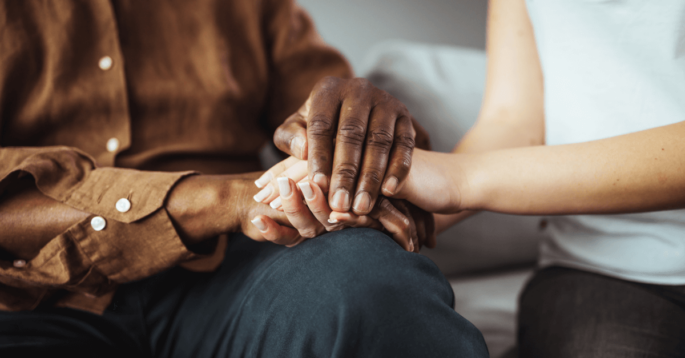Elder abuse is an all-too-common problem. Whether at home or in nursing homes and other care facilities, our most vulnerable elders are at risk.
Sadly, officials believe elder abuse is largely underreported. In fact, only 1 in 23 elder abuse cases are reported to authorities, according to estimates from the U.S. Department of Justice. Additionally, 1 in 3 nursing home residents experience nursing home abuse.
Fortunately, each state has laws to protect vulnerable populations from abuse. These include mandated reporting laws which require certain people to report elder abuse when they see the signs. Health care workers or other caregivers are commonly considered mandated reporters, making reporting abuse a part of their daily job.
Mandated reporting laws are meant to protect and save lives. Learn more about these laws and how you can report elder abuse even if you aren’t a mandated reporter.
Understanding Mandated Reporting Elder Abuse Laws in Every State
Mandated reporting laws designate certain individuals to report abuse or mistreatment of vulnerable people to authorities.
Every state has mandatory reporting laws in place specifically for elder abuse. However, some laws and specifics may vary between states, such as how elder abuse is defined and when mandated reporters have to notify authorities.
In addition to varying reporting laws, some states may have different agencies overseeing nursing home abuse.
The best place to learn about your state’s laws and resources is through your local Adult Protective Services (APS) office.
Who Are Considered Mandated Reporters of Elder Abuse?
In most states, all health care workers and caregivers are mandated reporters. This includes all workers at nursing homes and long-term care facilities. Even some educators who visit facilities may be required to report abuse if they witness it during their visit.
People commonly considered mandated reporters include:
- Doctors
- First responders, including police and fire departments
- Home health care workers and aides
- Maintenance staff, including those who may not work directly with residents
- Nurses
- Volunteers providing community opportunities for residents
However, each state has different policies regarding who its mandated reporters are. For example, California elder abuse laws include employees of financial institutions as mandated reporters if they suspect financial abuse.
Did You Know? You don’t have to be a mandated reporter to notify authorities of abuse you have witnessed. Our team has compiled resources on how to report nursing home abuse where you can find phone numbers, hotlines, and other agencies. In the event of a life-threatening emergency, always call 911.
Who Must Elder Abuse Be Reported To?
Who elder abuse needs to be reported to depends on the laws in any given state, but mandated reporters often must contact the state’s APS or a similar agency.
State APS agencies are tasked with protecting vulnerable adults from abuse, neglect, or other forms of exploitation. These agencies may work in tandem with traditional law enforcement, but the two have different functions.
Once elder abuse has been reported to the proper authorities, it may also be a good idea for a family to contact a nursing home abuse lawyer to discuss legal options. Attorneys can help families file civil lawsuits and pursue financial compensation to pay for medical bills and other expenses that stem from elder abuse.
How You Can Save Lives: Reporting Elder Abuse
Mandated reporters are essential in keeping vulnerable adults safe from elder abuse. Sadly, even those considered mandated reporters may ignore abuse and its warning signs. In some cases, they may even be the ones responsible for the mistreatment.
But even if you are not a mandated reporter, you can save lives by reporting abuse and advocating for those whose voices are not heard.
If elder abuse or nursing home abuse is not reported, it can lead to severe mental and physical injuries and even wrongful death. Reporting elder abuse allows APS and law enforcement to investigate the suspected abuse.
Additionally, reporting abuse allows attorneys to take the first step in helping victims after they have suffered. Formally documenting abuse can lead to victims getting the financial compensation they need to recover.
If you were impacted by nursing home abuse or elder abuse, get a free case review to see how we can help.
All of us can work together to reduce elder abuse rates and save lives.

